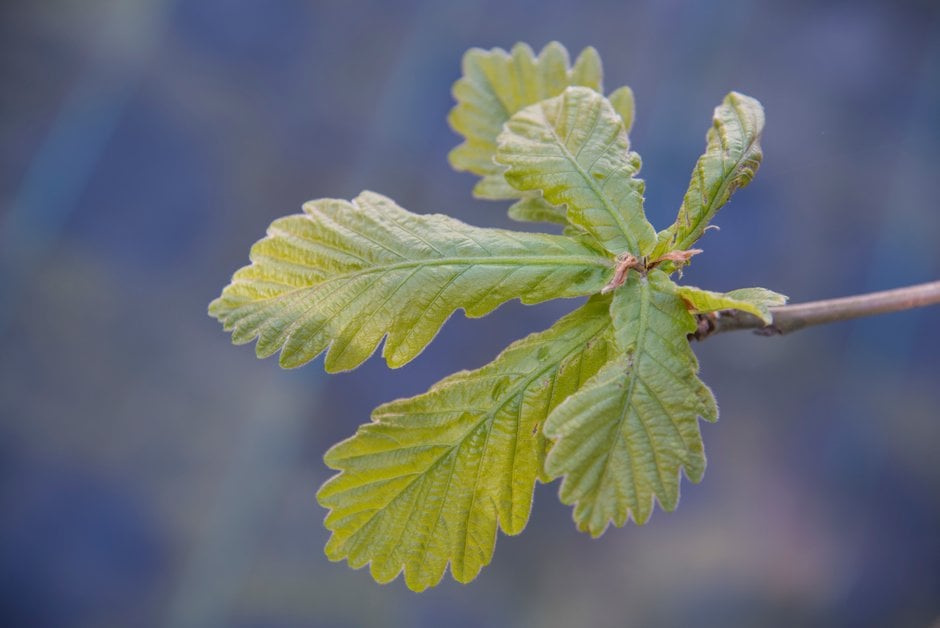Quercus dentata 'Sir Harold Hillier'
Daimyo oak 'Sir Harold Hillier'
A slow growing, deciduous tree to 10m tall, with stout shoots and a rounded crown on maturity. Leaves are very large, glossy, and shallowly lobed, and turn deep orange to pink in autumn. Small greenish-yellow catkins are produced in spring, followed by near-spherical single acorns

Buy this plant
Size
Ultimate height
8–12 metresTime to ultimate height
20–50 yearsUltimate spread
4–8 metresGrowing conditions
Moisture
Moist but well–drainedpH
Acid, NeutralColour & scent
| Stem | Flower | Foliage | Fruit | |
| Spring | Green Yellow | Green | ||
|---|---|---|---|---|
| Summer | Green | |||
| Autumn | Green Orange Pink | Brown Green | ||
| Winter |
Position
- Full sun
- Partial shade
Aspect
East–facing or North–facing or South–facing or West–facing
Exposure
Exposed or Sheltered Hardiness
H5Botanical details
- Family
- Fagaceae
- Native to GB / Ireland
- No
- Foliage
- Deciduous
- Habit
- Spreading branched
- Potentially harmful
- Pets (dogs): Harmful if eaten - for further information and contact numbers regarding pets, see the HTA guide to potentially harmful plants
- Genus
Quercus can be deciduous or evergreen trees or shrubs, with entire, lobed or toothed leaves; flowers inconspicuous, followed by characteristic acorns; sometimes good autumn colour
- Name status
Accepted
How to grow
Cultivation
Grow in deep, fertile, well-drained neutral to acidic soil
Propagation
Propagate by grafting
Suggested planting locations and garden types
- Architectural
- Low Maintenance
Pruning
Pests
May be susceptible to aphids, oak slugworm, oak gall wasp and oak processionary moth
Diseases
May be susceptible to powdery mildews and honey fungus
Love gardening
Sign up to receive regular gardening tips, inspiration, offers and more
View our Privacy Policy
Get involved
The Royal Horticultural Society is the UK’s leading gardening charity. We aim to enrich everyone’s life through plants, and make the UK a greener and more beautiful place.